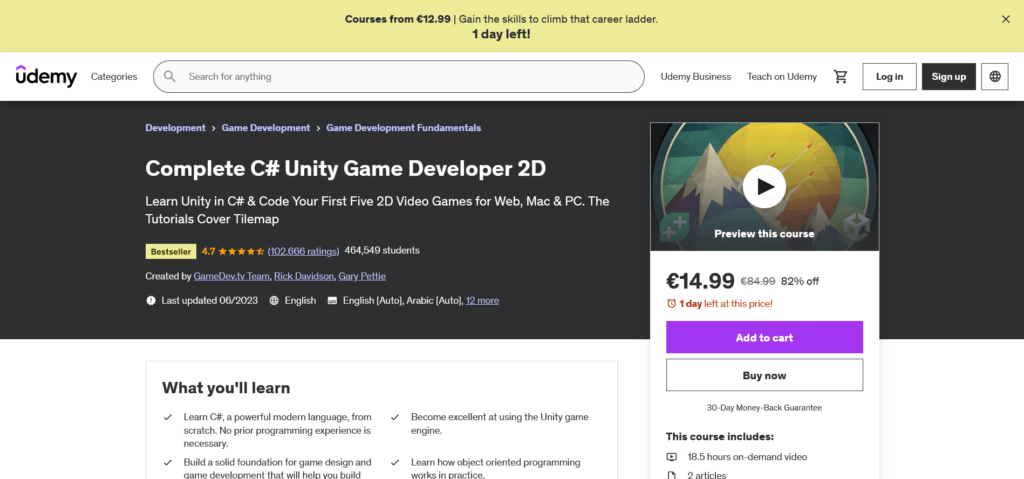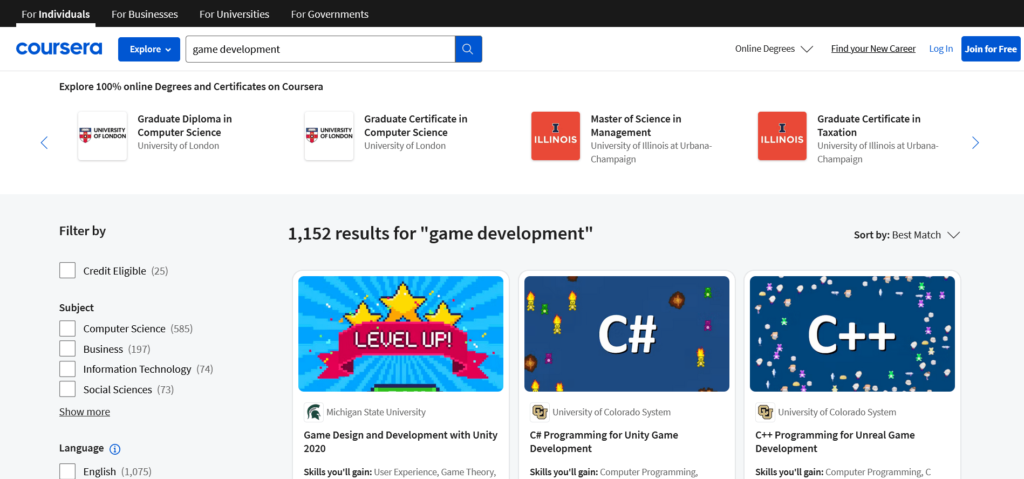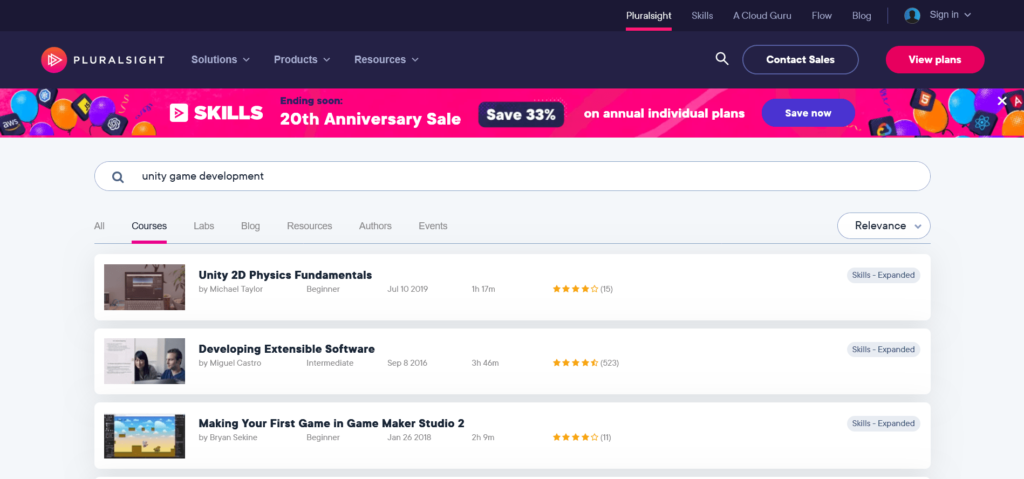Introduction
Welcome to the exciting realm of possibilities in the ever-evolving video game industry! If you’ve ever dream of turning your passion for gaming into a fulfilling career, you’re in the right place. In this comprehensive guide, we’ll delve into the key steps and strategies on how to start a career in the video game industry. Whether you’re a budding game designer, aspiring programmer, or a creative storyteller looking to make your mark, we’ll navigate the intricacies of breaking into this dynamic field. Join us as we explore the essential skills, educational pathways, and insider insights that will empower you to embark on your journey into the world of gaming. Ready to level up your professional life? Let’s discover how to start a career in the video game industry together!
Understand the Industry Landscape
Before embarking on a career in the video game industry, it’s essential to have a solid understanding of its diverse landscape. The industry comprises various segments, including game development, design, testing, marketing, and esports. Familiarize yourself with the different roles and identify the area that aligns with your skills and interests.
Acquire Relevant Education and Skills
Education plays a crucial role in shaping your career in the video game industry. Pursue a degree or certifications in fields such as game design, computer science, programming, graphic design, or animation. Additionally, hone your skills in specific software and tools commonly used in game development, such as Unity, Unreal Engine, and Adobe Creative Suite.
Build a Strong Portfolio
In the competitive world of game development, having a compelling portfolio is key. Showcase your skills and projects in a professional manner. Include game prototypes, coding projects, design concepts, and any other relevant work that demonstrates your abilities. A robust portfolio not only serves as a testament to your skills but also helps you stand out when applying for positions.
Networking and Building Connections
Networking is paramount in any industry, and the video game industry is no exception. Attend gaming events, conferences, and meetups to connect with professionals already established in the field. Utilize online platforms like LinkedIn, Twitter, and gaming forums to engage with industry experts, join discussions, and stay updated on the latest trends.
Internships and Entry-Level Positions
Gaining hands-on experience is invaluable when entering the video game industry. Look for internships, co-op programs, or entry-level positions in game development studios. This practical experience not only enhances your skills but also provides insights into the industry’s inner workings.
Stay Abreast of Industry Trends
The video game industry is dynamic and ever-evolving. Stay informed about the latest trends, technologies, and market demands. Follow industry news, read relevant publications, and participate in online communities to stay ahead of the curve. This knowledge will not only make you a more informed professional but also demonstrate your dedication to potential employers.
Continual Learning and Skill Development
The technology and tools used in game development are constantly evolving. Commit to lifelong learning by staying updated on new programming languages, software updates, and emerging technologies. Consider enrolling in online courses, attending workshops, or earning additional certifications to stay competitive in the industry.
Crafting a Stellar Resume and Cover Letter
When applying for positions, your resume and cover letter should effectively communicate your skills, experiences, and passion for the industry. Tailor your application materials to the specific job you’re applying for, emphasizing how your unique skills and experiences make you an ideal candidate.

Top Online Education Platforms to Learn How to Start a Career in the Video Game Industry
With the booming popularity of the video game industry, many enthusiasts aspire to turn their passion into a fulfilling career. Online education platforms have become invaluable resources, offering comprehensive courses to help individuals acquire the skills and knowledge needed to succeed in the dynamic world of game development. In this article, we’ll explore the top online education platforms that provide courses on starting a career in the video game industry.
Udemy

Udemy is a well-known online learning platform that hosts a plethora of courses related to game development. Whether you’re interested in programming, game design, or 3D modeling, Udemy offers a wide array of courses taught by industry professionals. Look for courses such as “Complete C# Unity Game Developer” or “Game Design and Development with Unity.”
Coursera

Coursera collaborates with top universities and institutions to provide specialized courses and certificates in game development. Explore their “Game Design and Development” specialization, which covers essential topics like game programming, virtual reality, and game production. Certificates earned through Coursera are recognized by industry leaders, enhancing your credibility.
LinkedIn Learning

LinkedIn Learning offers a dedicated learning path for aspiring game developers. The “Game Development Foundations” path covers fundamental concepts, tools, and languages used in the industry. With courses like “Learning C# for Unity Game Development,” you can develop the programming skills essential for creating interactive and engaging games.
Skillshare

Skillshare is known for its interactive and project-based approach to learning. Explore courses like “Game Development with Unity for Beginners” or “Introduction to Unreal Engine” to gain hands-on experience. Skillshare fosters a creative community, allowing you to collaborate with peers and receive feedback on your game development projects.
Pluralsight

For those looking to dive deep into game development technologies, Pluralsight is an excellent choice. Courses like “Unity Game Development: Scripting in C#” and “Unreal Engine 4: The Complete Beginner’s Course” provide in-depth knowledge and practical skills. Pluralsight’s platform is structured for professionals seeking a more technical and detailed learning experience.
Codecademy

Programming is a core skill in game development, and Codecademy offers interactive courses that make learning to code engaging and accessible. Start with their “Learn C++” or “JavaScript” courses to build a solid programming foundation. Codecademy’s hands-on approach allows you to practice coding in real-time.
FutureLearn
FutureLearn collaborates with industry leaders to deliver courses that are relevant and up-to-date. Explore their “Video Game Design and Development” courses, which cover various aspects of the industry. The platform’s social learning features enable you to connect with peers, fostering a collaborative and supportive learning environment.
edX

edX offers professional certificates in collaboration with renowned universities. Enroll in the “Professional Certificate in Game Design and Development” to gain comprehensive knowledge and skills. The certificates earned on edX are recognized by industry professionals, enhancing your credibility in the competitive job market.
The Top 10 Questions About How to Start a Career in the Video Game Industry
1. What educational background is needed to enter the video game industry?
To break into the video game industry, a background in fields such as game design, computer science, programming, graphic design, or animation is advantageous. Pursuing a relevant degree or certifications provides a solid foundation, but practical skills and a compelling portfolio are equally crucial.
2. How can I build a standout portfolio for the video game industry?
Crafting a standout portfolio involves showcasing your skills and projects in a professional manner. Include game prototypes, coding projects, design concepts, and any other relevant work. Tailor your portfolio to highlight your strengths and demonstrate your passion for game development.
3. What skills are in demand in the video game industry?
In-demand skills in the video game industry include programming languages (e.g., C++, Java), proficiency in game development tools (e.g., Unity, Unreal Engine), graphic design, animation, and problem-solving abilities. Stay updated on emerging technologies to remain competitive in this ever-evolving field.
4. Are internships essential for breaking into the video game industry?
Internships are highly beneficial for gaining practical experience and insights into the industry. Look for internships, co-op programs, or entry-level positions in game development studios to enhance your skills and build valuable connections.
5. How can I network with professionals in the video game industry?
Networking is crucial for career growth. Attend gaming events, conferences, and meetups to connect with industry professionals. Utilize online platforms like LinkedIn and participate in gaming forums to engage in discussions, share insights, and build relationships with established individuals in the industry.
6. What are the entry-level positions available in the video game industry?
Entry-level positions in the video game industry include game tester, quality assurance (QA) tester, junior game developer, and level designer. These roles provide valuable hands-on experience and serve as stepping stones to more advanced positions.
7. Which programming languages are most important for game development?
Programming languages like C++, Java, and Python are highly relevant in the video game industry. Familiarize yourself with these languages, as they are commonly used in game development for creating robust and efficient code.
8. How can I stay updated on industry trends in the video game sector?
Stay informed about industry trends by following gaming news, reading relevant publications, and participating in online communities. Engage with industry experts on social media platforms and attend virtual or physical events to keep abreast of the latest developments.
9. Is formal education necessary to succeed in the video game industry?
While formal education can be beneficial, it’s not the sole determinant of success. Practical skills, a strong portfolio, and networking are equally important. Many successful professionals in the video game industry have a combination of formal education and hands-on experience.
10. What steps can I take to continually improve my skills in game development?
Commit to lifelong learning by enrolling in online courses, attending workshops, and earning additional certifications. Stay updated on new programming languages, software updates, and emerging technologies to remain a competitive and skilled professional in the video game industry.
Conclusion
In conclusion, this guide has navigated the intricate terrain of launching a successful career in the video game industry, offering practical advice on how to start a career in the video game industry. By incorporating the strategies and insights highlighted throughout this comprehensive resource, aspiring professionals can confidently embark on their journey into this dynamic field. Whether you are honing your skills, networking with industry insiders, or staying updated on emerging trends, mastering the art of how to start a career in the video game industry is pivotal to achieving lasting success. Seize the opportunities, fuel your passion, and utilize the valuable tips shared in this guide to position yourself for a thriving career in the exciting world of video game development. Your pathway to success in the video game industry begins with the knowledge and actionable steps provided here, ensuring you’re well-prepared for the challenges and triumphs that lie ahead.














